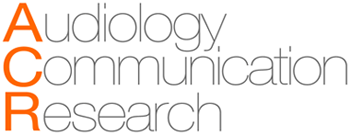ABSTRACT
Purpose
The aim of the present study was to compare latency and amplitude of the cortical auditory evoked response P1i among newborns in an alert state and during light sleep.
Methods
Twenty-five neonates with normal transient evoked otoacoustic emissions were tested with cortical auditory evoked potentials (CAEP): 10 were in an alert state and 15 in light sleep during testing. For the investigation of cortical potentials, a single-channel Hearlab System equipment, Cortical Tone Evaluation module (CTE), was used. The P1i potential was investigated monoaurally at an 80dBnHL intensity at 500, 1000, 2000 and 4000 Hz. P1i was automatically detected by the equipment. Latency and amplitude were marked by three judges. The responses of the newborn in an alert state were compared with those in light sleep.
Results
There was no statistically significant difference between the two groups of neonates for the amplitude and latency values at the four tested frequencies.
Conclusion
There was no influence of the neonates’ behavioral state on the evaluation of the P1i auditory cortical potential.
Keywords:
Evoked potentials, Auditory; Sleep; Hearing; Infant, Newborn; Electrophysiology

 Thumbnail
Thumbnail
